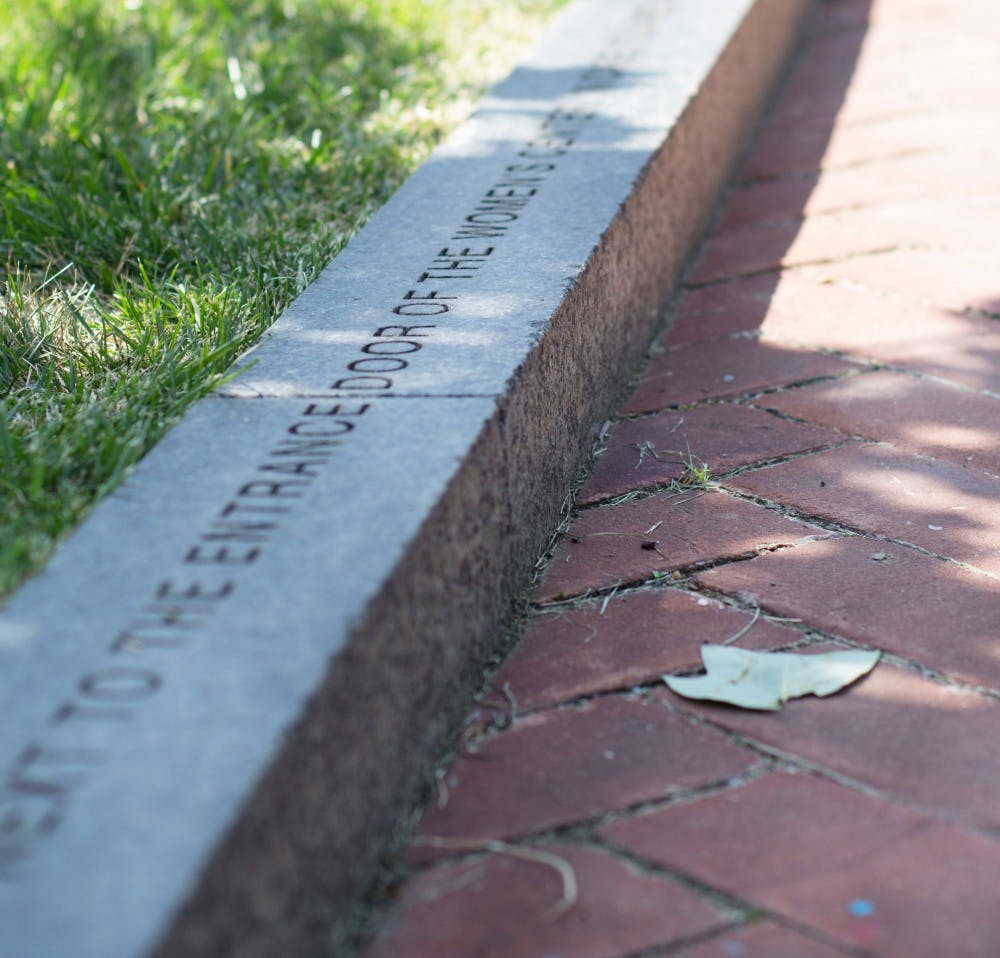If you’ve ever eaten at Hill or dined at New College House, then this might strike you as a scene of déjà vu. A winding brick path snakes, lined with granite benches and black cast–iron lamp posts, too often outshined by the lure of a hot meal to leave a distinct impression.
Sandwiched between the two dining halls, Hill Square is home to Jenny Holzer’s Hill Square installation, constructed in 2003 to commemorate the anniversary of 125 years of Women at Penn in 2001. Those 125 years, to say the least, have been monumental ones. From 1876, when women first joined Penn’s classrooms, to 1901, when women began to emerge as members of administration and academic faculty, leaving their mark on the student body by establishing school traditions and founding organizations, to 1992, when women were finally integrated into Penn as both equal counterparts to their male peers and vital decision makers among administration.
Though each achievement may have appeared minuscule, with perhaps each destination reached seemingly barely worth the struggle required to get there, for every step these women took, they paved the way for the countless opportunities that we take for granted today.
Holzer, a New York artist known for her work in text–based designs, created the granite benches and street curbs, engraving them with the quotes by or about women throughout Penn’s history. The installation serves as a celebration of both the people who fought for change and those who lived to carry on its legacy.

The choice of artist was by no means an arbitrary one. In fact, Holzer's stance on social justice and political activism further imbues the work with historical significance. Just as the women whose quotes where engraved by her hand had advocated for a level playing field between men and women at Penn, Holzer calls attention to injustice through stark text–based art pieces and her iconic LED light installations.
Her initiative in art is less about the story of individuals who breathed life into certain ideas, and more about the concept of an idea itself. Holzer has said in interviews that "anonymity is critical."
Her artwork speaks to her reluctance to associate a face to a quote. It is the sparking of a critical thought that comes first and foremost. Consequently, Holzer's Hill Square installation is not eye–catching. It was never meant to be. The curbs and benches are marbled gray, the text a darker grey. It's easily overlooked, yet powerful for each syllable it has to say.
So the next time you come to Hill or New College House, don’t forget the snippets of history carved in stone at your doorstep.
Read the words of Andrea Darna Cherng (C '01) as she discusses the purpose of education. Stroll down the path with pride knowing we now have "Women on the Walk," as Ashley Sarah Paine (C '96) advocated for. Run your hands over the deep wrought ruminations of Mary Ellen Mark (C '92), who tells us to live a life worth fighting for—one which we can look back on and say, “This hasn’t been for nothing.”

